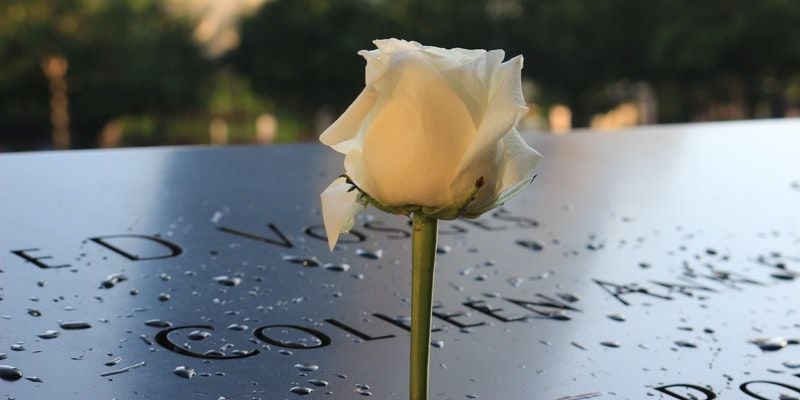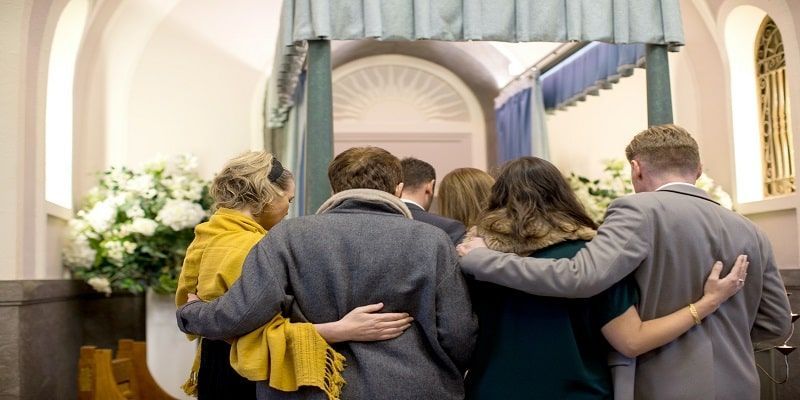How to Write a Heartfelt Eulogy in 5 Easy Steps
Learn how to write a heartfelt eulogy with these five simple steps. Honor your loved one’s memory with a meaningful tribute. Serving families in La Mirada, CA.

Delivering a eulogy is a profound way to honor a loved one’s memory, reflecting on the life they lived and the impact they had on those around them. If you are preparing to speak at a service hosted by funeral homes in La Mirada, CA, you may feel a mix of emotions—sadness, gratitude, and perhaps anxiety about doing justice to your loved one’s legacy. Writing a heartfelt eulogy may seem daunting, but with a structured approach, it becomes a meaningful and personal tribute. Here are five straightforward steps to help you craft a touching eulogy that celebrates life.
1. Gather Your Thoughts and Memories
Start by reflecting on your loved one’s life. Think about their personality, achievements, values, and the moments that made them special to you. You can gather input from family members and friends to include a variety of perspectives. Consider key milestones, their favorite hobbies, or simple everyday moments that capture their essence. Making a list of these details can serve as the foundation for your eulogy.
Do not forget to highlight the relationships they cherished—whether they were a devoted spouse, a nurturing parent, or a loyal friend. These relationships help illustrate the depth of their character and their lasting influence on those around them.
2. Create an Outline
Once you have gathered your memories, create an outline to give your eulogy a logical flow. Typically, eulogies include an introduction, a body, and a conclusion:
- Introduction: Briefly introduce yourself and your relationship to the deceased.
- Body: Share stories and insights that highlight the person’s character, values, and contributions to the lives of others.
- Conclusion: End with a heartfelt message, a quote, or a closing sentiment that encapsulates your love and respect for them.
This structure helps you stay organized and ensures your words resonate with the audience. A clear outline also prevents you from becoming overwhelmed, especially when emotions run high.
3. Share Personal Stories
Personal anecdotes are the heart of a great eulogy. Choose stories that illustrate the deceased’s kindness, humor, or the unique qualities that made them who they were. These stories help paint a vivid picture and resonate deeply with those in attendance. For example, you might recount a time they offered support during a difficult moment or a cherished family tradition they upheld. Keep the tone authentic and reflective of their personality.
You may also want to include how the person inspired or taught you something valuable. Perhaps they showed resilience in the face of challenges, generosity to those in need, or unwavering positivity that uplifted everyone around them. Such insights help the audience connect with your message on a deeper level.
4. Keep It Concise and Heartfelt
While it is tempting to include every cherished memory, aim to keep your eulogy concise—typically 5 to 10 minutes. Focus on quality over quantity, selecting the stories and messages that best capture the person’s spirit. Avoid overthinking your word choice; sincerity matters more than eloquence. A simple, heartfelt delivery will leave a lasting impression.
It is helpful to identify a central theme or quality that defines the individual’s life. Whether it is their boundless love for family, dedication to their community, or passion for adventure, tying your words to a unifying theme ensures your eulogy is cohesive and impactful.
5. Practice and Prepare
Practice your eulogy aloud several times before the service. This helps you feel more confident and allows you to adjust the pacing or content as needed. If possible, rehearse in front of a trusted friend or family member who can offer constructive feedback. Bring a printed copy with you to the service to help you stay on track, especially if emotions run high. Remember, it is okay to pause or take a moment if needed—it shows the depth of your feelings.
Additionally, consider incorporating a moment of levity or humor if appropriate. A lighthearted story that reflects your loved one’s sense of humor can bring comfort and remind the audience of the joy they brought into the world.
Final Thoughts
Writing a heartfelt eulogy is a labor of love that honors the memory of your loved one. By following these steps, you can create a meaningful tribute that brings comfort to others and preserves the legacy of someone dear to your heart. For families seeking compassionate and personalized support, funeral homes in La Mirada, CA, provide a trusted space for celebrating the lives of those we hold dear.
If you need additional guidance or wish to explore our services, contact us at Community Funeral Service. Let us help you create a meaningful farewell for your loved one.










